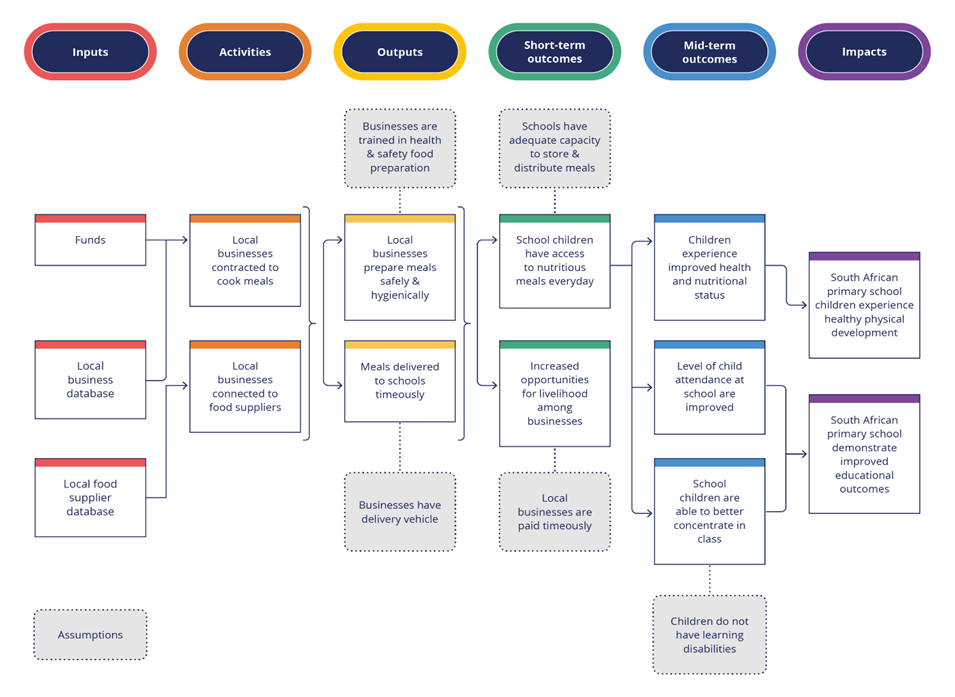Question
PROGRAMME MANAGEMENT PLEASE READ THROUGH THE QUESTION, RESEARCH AND ANSWER ACCURATELY CASE STUDY Example: School Feeding Programme 27% of children in South Africa under five
PROGRAMME MANAGEMENT
PLEASE READ THROUGH THE QUESTION, RESEARCH AND ANSWER ACCURATELY
CASE STUDY
Example: School Feeding Programme
27% of children in South Africa under five years of age are stunted in terms of nutrition, and many children in South Africa go to school hungry (DBE, 2019). This affects their ability to learn and in turn damages educational outcomes. In this fictional programme, a funder has decided to start a school feeding programme among local primary schools to address this issue. The funder wishes to contract local small businesses to prepare healthy meals for school children. A theory of change has been developed to communicate the programme logic and expected pathways of change.
Theory of Change Narrative
The programme has been established in order to achieve the following long-term impacts:
- Primary school children from disadvantaged areas (in quintiles 1 to 3) experience healthy physical development; and
- These children demonstrate improved educational outcomes.
The primary activities of this programme are to contract small local businesses to cook meals that can be distributed to local primary schools; and connect these businesses with local food suppliers. Consequently, these businesses will prepare meals for schools, ensuring high levels of food safety and hygiene, and deliver them to the schools timeously. These outputs are based on the assumptions that businesses are trained in food safety preparation and that the businesses have an appropriate vehicle for delivery.
As a result of this programme, local businesses will have increased opportunities for livelihood (assuming they are paid timeously and consistently). Furthermore, disadvantaged school children are then able to have access to nutritious meals at school every day (assuming schools are able to adequately store and distribute the meals). In the medium-term, this will lead to children experiencing an improved health and nutritional status, better levels of school attendance, and an increased ability to concentrate in class, assuming that they do not experience other influences that could impact their concentration and learning (for example, a learning disability).
The ToC developed by the programme stakeholders can be seen in Figure 1.
Figure 1:Theory of Change School Feeding Programme.

Step by Step Solution
There are 3 Steps involved in it
Step: 1

Get Instant Access to Expert-Tailored Solutions
See step-by-step solutions with expert insights and AI powered tools for academic success
Step: 2

Step: 3

Ace Your Homework with AI
Get the answers you need in no time with our AI-driven, step-by-step assistance
Get Started


